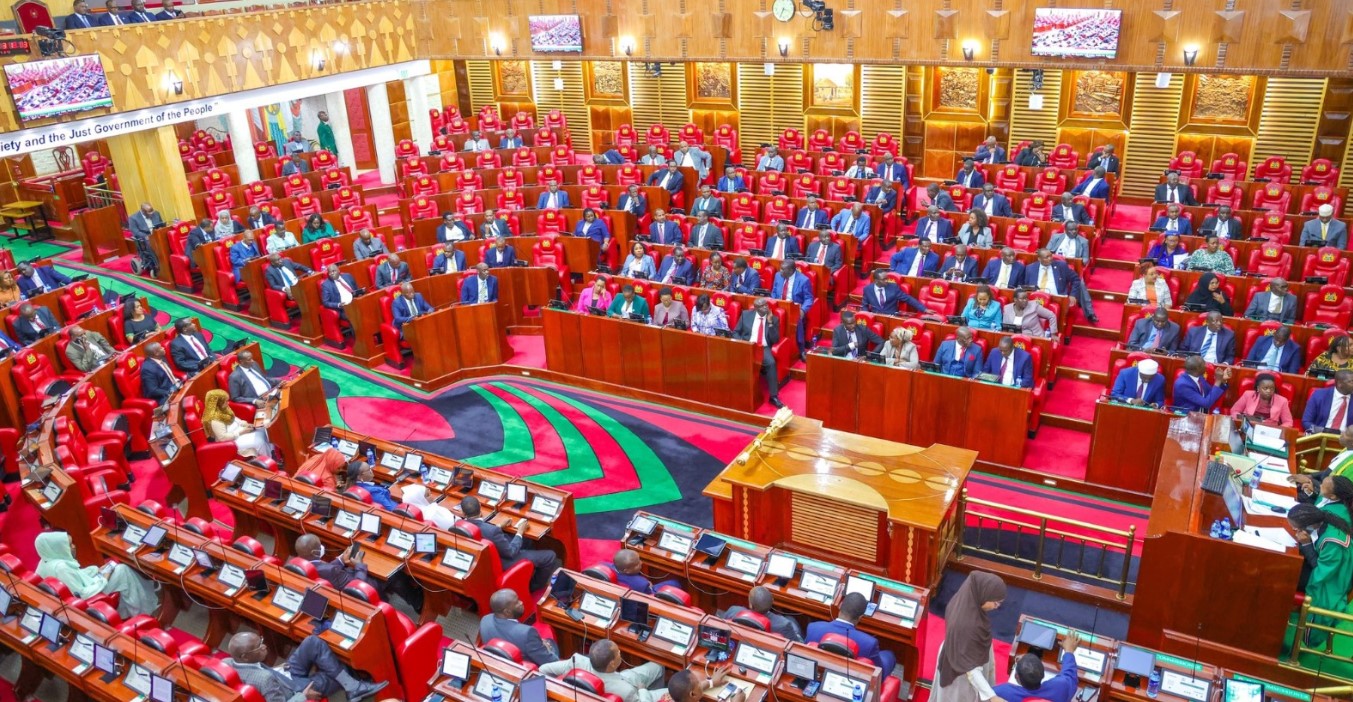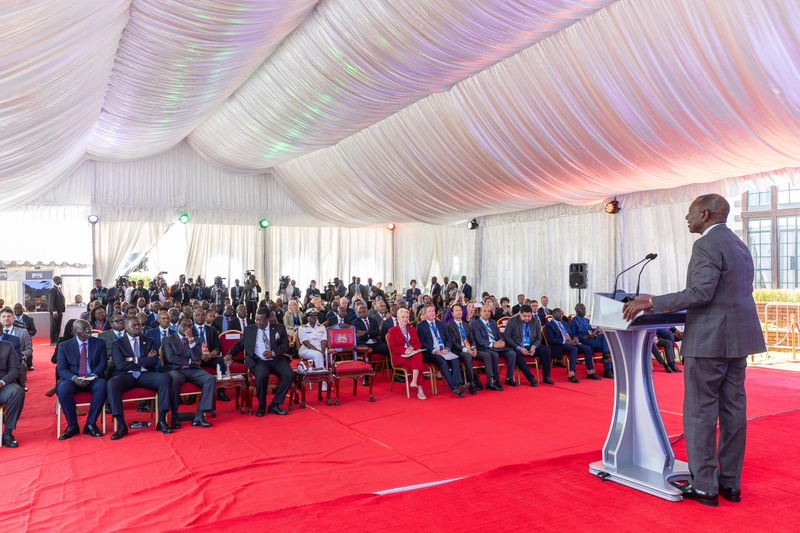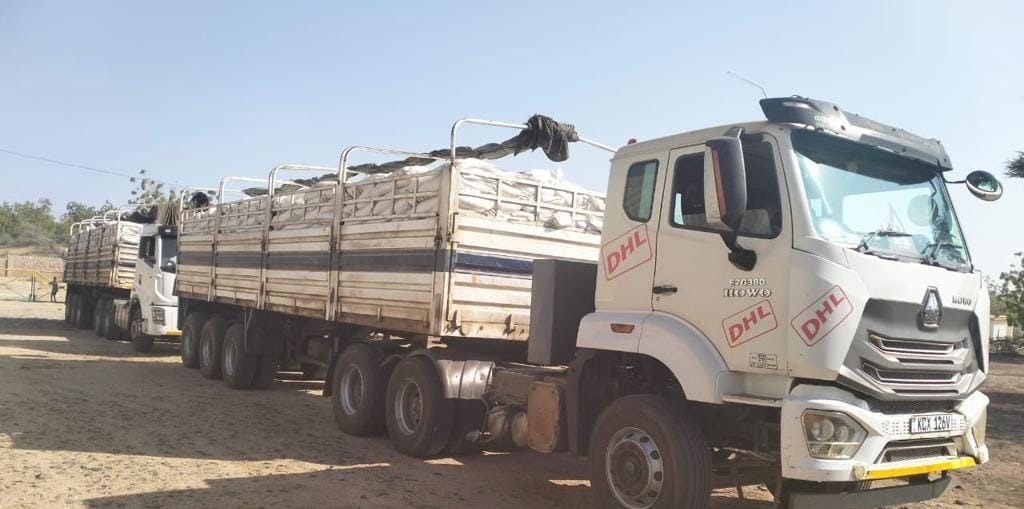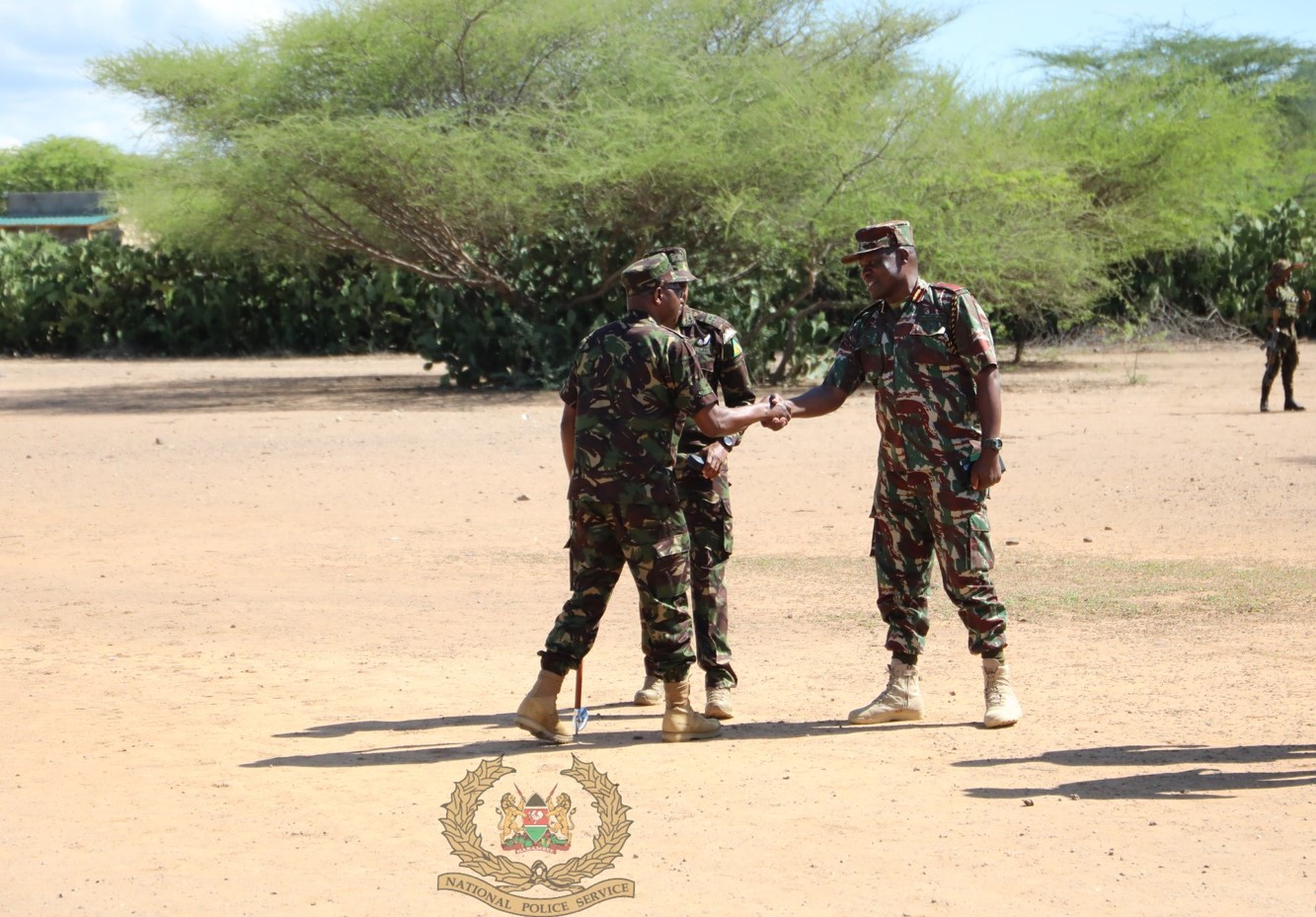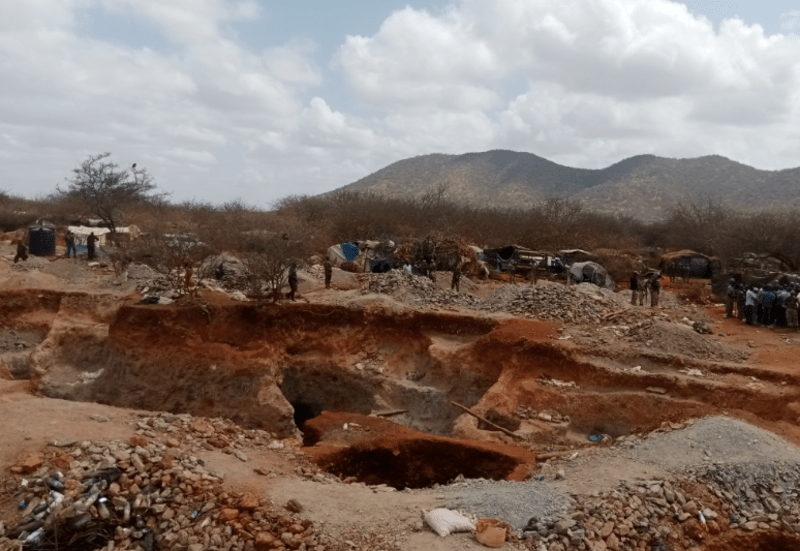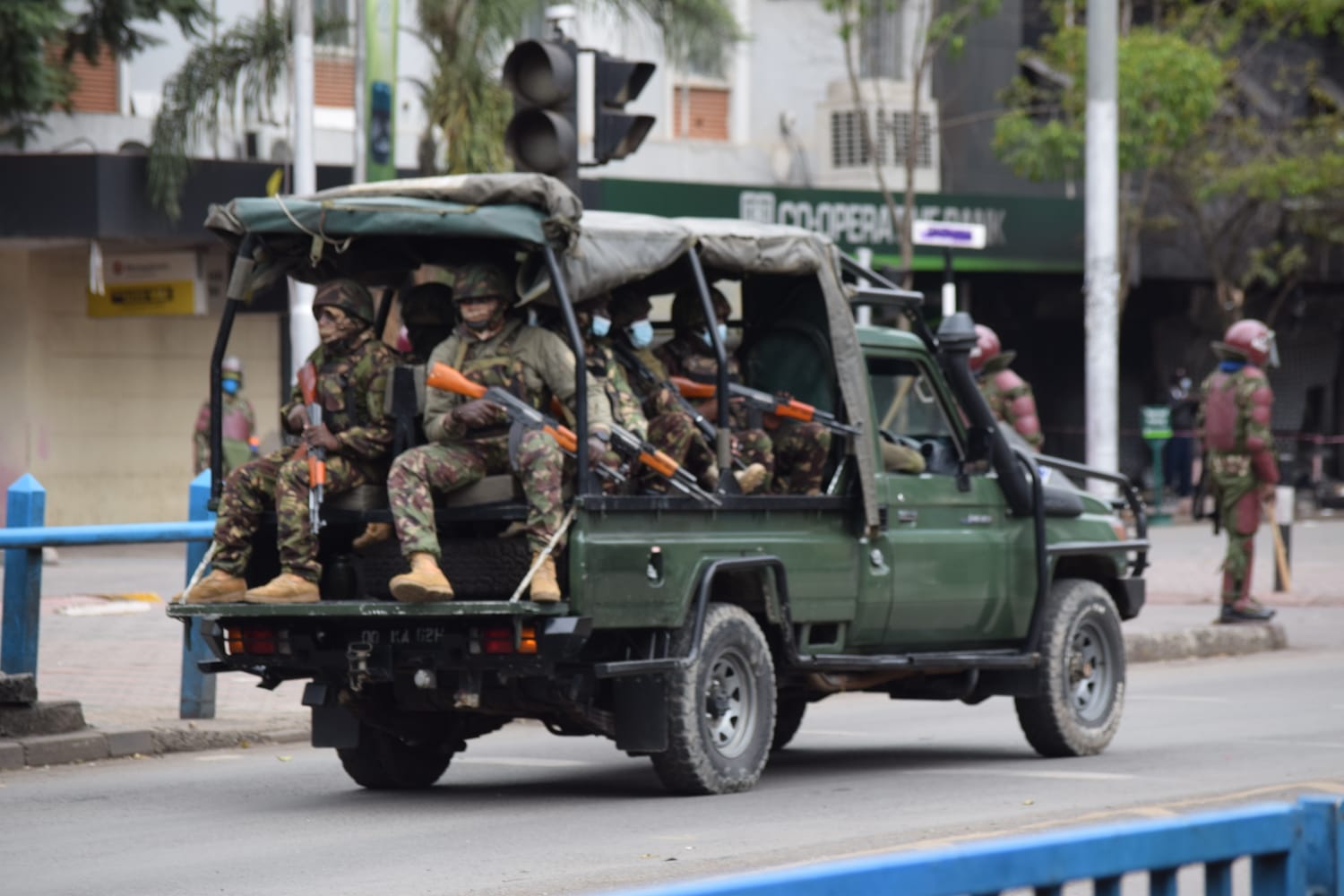Win for residents as KDF ordered to vacate 2,500 hectares of land in Marsabit
By Waweru Wairimu |
The court also awarded the affected communities Sh30 million for damages suffered following the illegality, with the money to be jointly contributed by the Marsabit County Government, the Chief of Defence Forces and the Defence Cabinet Secretary.
The Kenya Defence Forces (KDF) has been ordered by the High Court to vacate 2500 hectares of land it irregularly acquired from Samburu and Rendille communities in Marsabit's Karare-Songa ward for a military base and to demolish any existing structures within a year.
The Environment and Land Court also awarded the affected communities Sh30 million for damages suffered following the illegality, with the money to be jointly contributed by the Marsabit County Government, the Chief of Defence Forces and the Defence Cabinet Secretary.
Keep reading
- Communities in Tana River County urged to halt retaliatory attacks, embrace peace
- Marsabit football stakeholders petition FKF Electoral Board, stage protests against electoral irregularities
- LSK warns against MPs' growing urge for constitutional amendments after protests
- Violence at the Kenya-Ethiopia border: What’s driving insecurity in the region
The three alongside the Attorney General were listed as the Respondents and the National Land Commission (NLC) and Kenya Wildlife Service as interested parties in the petition filed by 19 people on behalf of the affected communities in 2020.
The petitioners filed a suit following the allocation of thousands of hectares of their land to the military by Marsabit Governor Mohamud Ali five years ago (July 2, 2019) without adequate public involvement.
The petitioners told the court that the communities had offered to allocate the military some land within the Mata Hama area for a training base in 2012 but turned down the offer only for it to eight years later approach the county for an alternative 10,000 hectares within Karare area.
The request for a change of location was vehemently opposed by elders because the new location was a culturally and biologically diverse critical area of importance and sensitive conservation and pastoral grazing land.
Through Senior Counsel Katwa Kigen, the residents maintained that the suit land was unregistered community land held in trust by the county government on their behalf for purposes of wildlife, culture, tourism and land use.
They also argued that the acquisition of the land for public purposes was done without involving the NLC which is responsible for the acquisition of land on behalf of county and national government.
They averred that there was no proper public participation and that the Governor used his office to usurp the communal land by using unsuspecting entities to allocate 877.30 square kilometres of their land without involving the County, National Assembly and communities.
One of the petitioners, Daniel Burcha, who was the Laisamis MCA, testified that the issue of whether to allocate land to KDF or not, the amount in acreage and location of the land was never brought to the County Assembly or raised in any of the Assembly's events.
The decision by the military, they said, aggravated the marginalisation that the two minority communities continued to face including few state investments in the ward, illiteracy and poverty.
Forceful acquisition
Despite resistance from the public, the petitioners said, the military forcefully acquired the property, illegally entered with trucks and bulldozers and started digging an access road before later erecting a fence using military force, sparking fear and tension.
The protracted row resulted in the loss of four lives, displacement of families, and denied access to grazing and watering points as well as cultural sites used for educational purposes and interference with wildlife migratory routes/corridors.
"The affected area is the only fertile land and serves as water catchment during dry seasons and is used by Karare, Songa, Logologo, Kamboya and Laisamis areas and its occupancy has affected food and nutrition security," they said in their submissions.
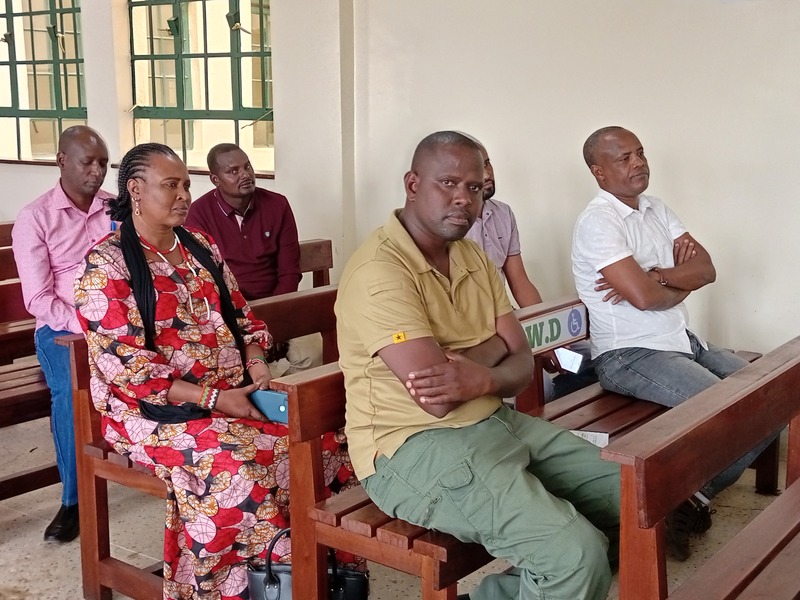 Some of the petitioners in court during delivery of the judgment at Isiolo High Court on July 19, 2024. (Photo: Waweru Wairimu)
Some of the petitioners in court during delivery of the judgment at Isiolo High Court on July 19, 2024. (Photo: Waweru Wairimu)
The residents lamented what they termed as denied protection by the law, discrimination against in use of and involvement in actions directly relating to their land and that the respondents failed to offer fair compensation to them as required in law.
They sought a declaration as null and void, the unilateral and non-consultative acquisition of their land by the military, orders barring the soldiers from continued development, alienation or disposal of the property and requiring them to exit from the suit land.
On their part, the respondents maintained that the suit land was public property following its alleged gazettement as National reserve in 1948 vide gazette notice 936, from whom a portion was excised for reserve (notice 3962 of 1983).
The military said owing to the security dynamics in the county, there was a need to have their presence as a matter of urgency given that Marsabit shared an international border spanning thousands of kilometres with Ethiopia.
Further, they said, military presence would help in tackling the county's array of challenges including the proliferation of firearms, cattle rustling and hostile relationships between local communities.
It was their submission that the process for the acquisition of the land was above board and inclusive and involved local communities and government agencies.
They filed a preliminary objection on claims that the petitioners had not exhausted all available mechanisms before filing the suit, that the suit did not meet the constitutional threshold and that the issue was an intergovernmental dispute that could have been handled through internal mechanisms.
Filed by independent citizens
But Justices Peter Njoroge, Charles Yano and Christopher Nzili dismissed the objection, saying the petition was not an intergovernmental dispute as it was filed by independent Kenyan citizens, and found that it met the constitutional threshold.
The judges drew reference to multiple cases while delivering the judgment at Isiolo ELC Court including a report by the twelfth Parliament Departmental Committee on Defence following an inquiry into land acquisition by KDF for the establishment of a base in Narok County.
The April 2, 2019 report laid bare biased adherence to the law which made the judges concur with assertions by the petitioners that they were being discriminated against because of their minority ethnicity.
In the report, the land that had been earmarked was within the Maasai Mara Game Reserve ecosystem and was along the migratory corridor of wildlife with residents then lamenting over lack of public participation and non-compliance with existing laws.
The military involved the NLC and consequently published a gazette notice 5692 on June 8, 2018, for proposed Narok military land, complying with the Land Act.
The Judges found the respondents culpable of ignoring the constitutional and legal framework governing the acquisition of land for public purposes in the Marsabit case.
"It was discriminatory on the part of CS, CDF and the Attorney General to ignore the law on suit land yet and when almost at the same time for Defence purposes, they followed the law in Narok County," Justice Njoroge said during delivery of the judgment.
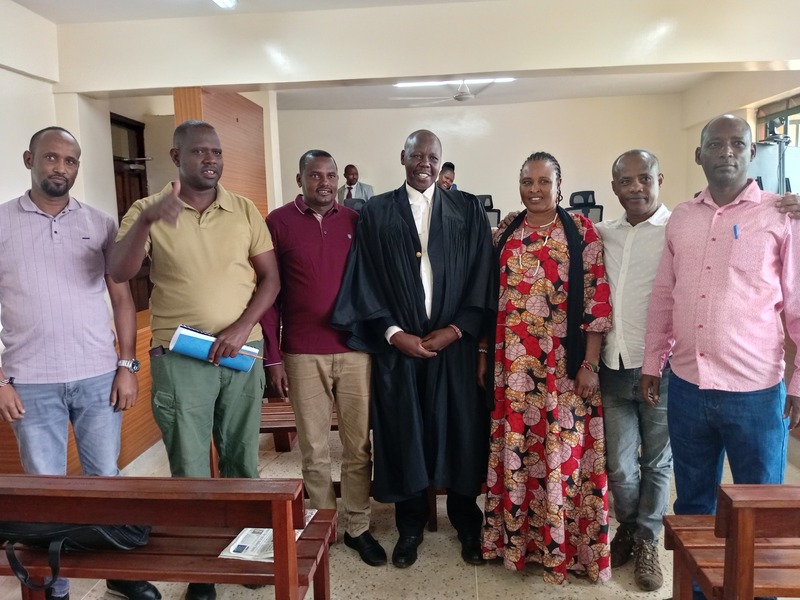 Senior Counsel Katwa Kigen who represented half of the petitioners poses with the petitioners for a photo after they won a case against the military on July 19, 2024. (Photo: Waweru Wairimu)
Senior Counsel Katwa Kigen who represented half of the petitioners poses with the petitioners for a photo after they won a case against the military on July 19, 2024. (Photo: Waweru Wairimu)
According to the judges, the Marsabit Governor's action to allocate land to the Ministry of Defence had no basis in law and other respondents' attempts to embrace and sanitize the Governor's illegality demonstrated impunity by the government and its agencies.
The court said the purported gazette notice of 1948 had not been authenticated as valid. They said while the respondents had a chance to review and relook their decision after the petitioners moved to court and a status quo order was issued, they maintained their actions were lawful, legal and constitutional.
"The Attorney General took a partisan position and the constitutional and legal framework governing acquisition of land for public use was not followed".
Justice Njoroge said by relying on the Governor's letter and a purported public participation report, the respondents wanted the court to sanitize an already flawed process in the name of national security and public interest.
"There is no evidence to show that public interest or state security outweighs the interests of the petitioners," he said.
"The petitioners have discharged the burden of proof that the process did not meet constitutional and statutory tests...Their rights were violated, infringed and breached," the court ruled.
The judges directed that the Sh30 million award be handled by a Trust to be constituted by area MCA, County Commissioner, two petitioners and county government representatives and which will be expended in projects to benefit the affected communities.
The petitioners were represented by Christine Dokhole, first petitioner Leruk Murusi and Karare MCA Joseph Loruk during the judgment delivered at Isiolo High Court and virtually.
Senior Counsel Katwa Kigen hailed the judgment terming it a relief to the communities whose rights were violated for being minorities in the county.
"We are happy that the Judges have safeguarded the rights of the communities that had been violated. Government officers and agencies should not look down upon some communities simply because they are marginalized," he said.
The veteran lawyer said the compulsory acquisition of the land was aimed at giving advantage to other big communities and extending the marginalisation that the two communities continued to face.
Reader comments
Follow Us and Stay Connected!
We'd love for you to join our community and stay updated with our latest stories and updates. Follow us on our social media channels and be part of the conversation!
Let's stay connected and keep the dialogue going!

